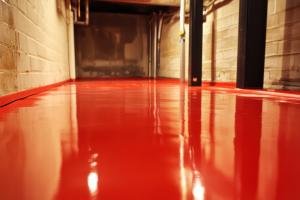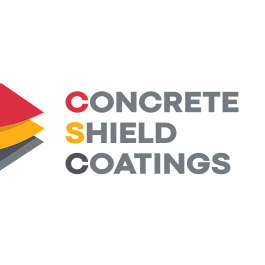
Mundelein, IL Concrete Shield Coatings Highlights Advancements in Epoxy Floor Technology for Below-Grade Spaces
Concrete Shield Coatings showcases new epoxy floor solutions for basements, focusing on moisture control, durability, and modern design adaptability.
MUNDELEIN, IL, UNITED STATES, May 12, 2025 /EINPresswire.com/ -- Concrete Shield Coatings, a specialty flooring company based in Mundelein, Illinois, is spotlighting a series of advancements in epoxy floor technology, particularly as they relate to basement and other below-grade environments. These developments reflect a broader evolution in the material science and installation practices associated with residential and light-commercial floor coating systems.
Recent years have seen significant interest in improving the durability, moisture resistance, and aesthetic flexibility of basement floor coatings, especially in regions with varying humidity levels and high groundwater presence. Concrete Shield Coatings has been closely involved in the adoption and field testing of new epoxy formulations designed specifically for sub-surface applications.
“Basements are inherently complex spaces due to their susceptibility to hydrostatic pressure, vapor transmission, and temperature fluctuations,” said Dimitri K., President of Concrete Shield Coatings. “The latest epoxy systems are engineered to address those conditions more effectively than previous generations.”
According to the company’s internal assessments and feedback from field technicians, modern epoxy basement floor technologies incorporate improved adhesion properties, chemical resistance, and low-VOC formulations that support both performance and indoor air quality. Additionally, these systems are increasingly customizable, allowing installers to integrate elements such as epoxy flakes for enhanced traction, texture, and appearance.
The shift in design priorities coincides with a growing number of residential property owners seeking to convert basements into livable, multi-use areas. As such, demand for high-performance, low-maintenance flooring solutions has increased. Online search trends indicate rising interest in phrases such as “epoxy floor” and “basement floor coatings,” suggesting that property owners are actively researching options for finishing concrete slab surfaces.
Concrete Shield Coatings reports that recent advancements in moisture-tolerant primers and flexible topcoats have been critical in expanding the use of epoxy coatings in below-grade construction. These improvements minimize the risk of delamination and discoloration caused by water vapor migration, a common challenge in older or unsealed basements.
“The ability to apply epoxy products in damp or semi-cured conditions has been a major breakthrough,” said Dimitri K.. “It reduces project delays while improving long-term bond integrity.”
One such innovation involves the integration of vapor-barrier epoxy primers with high tensile strength. These primers form a sub-coating layer that seals pores and provides a solid base for subsequent epoxy applications, even in basements where relative humidity in the concrete exceeds standard limits.
Another development is the increased use of decorative and functional additives, including epoxy flakes, which are embedded into the topcoat to create a speckled appearance and improve slip resistance. The flakes also allow for a broader color palette and visual interest, a notable improvement over traditional single-color floor coatings.
In light of these changes, Concrete Shield Coatings has expanded its training program for installation teams, with a focus on proper substrate preparation, moisture testing, and product-specific application methods. According to company representatives, improper preparation remains one of the primary causes of coating failure, particularly in below-grade settings.
“Effective basement floor coating isn’t just about the product—it’s about the process,” said Dimitri K.. “Surface profiling, moisture mitigation, and layer sequencing must be precisely executed to ensure a long-lasting result.”
The company has also invested in new tools for evaluating slab conditions prior to installation. These include digital moisture meters, calcium chloride test kits, and thermal imaging systems to detect areas of concern not visible to the naked eye. Such diagnostics have become increasingly important as homeowners request coatings that perform well in finished living spaces, including basements used as bedrooms, offices, or home gyms.
Concrete Shield Coatings notes that epoxy floor systems in below-grade spaces must meet multiple criteria: structural compatibility with concrete, resistance to common contaminants like mold and bacteria, and adaptability to thermal expansion and contraction. Epoxy’s chemical structure, when properly formulated, allows for all these qualities while providing a visually cohesive finish.
In municipal or multi-unit buildings with shared basement corridors or storage spaces, epoxy coatings have proven valuable for their light-reflective properties and ease of cleaning. Additionally, the ability to create color-coded zones or safety markings has made epoxy systems increasingly attractive to property managers seeking practical yet durable solutions.
The company’s research also points to growing interest in hybrid floor systems that combine epoxy base coats with polyurethane or polyaspartic top layers. These systems offer enhanced UV stability and faster curing times, making them suitable for high-traffic or time-sensitive installations.
As awareness of these options spreads, Concrete Shield Coatings anticipates continued demand for epoxy basement floor installations throughout suburban and urban markets in northern Illinois and beyond. The firm continues to track innovations in material formulation and substrate treatment, aiming to support evolving architectural and functional needs in modern construction.
“Today’s basement is not the unfinished, utility-driven space of the past,” said Dimitri K.. “It’s a functional part of the home or facility, and flooring systems must meet those expectations.”
About Concrete Shield Coatings
Concrete Shield Coatings is a Mundelein, Illinois-based company specializing in high-performance concrete floor coating systems. With a focus on residential, commercial, and industrial applications, the company provides solutions tailored to specific environmental and usage conditions. Its services include epoxy and polyaspartic coatings, moisture mitigation systems, and custom surface designs for both above- and below-grade installations. All work is performed by trained technicians using industry-recognized application standards and technologies.
For additional information about coating technologies or to request technical specifications, contact:
Media Contact:
Dimitri K.
President
Concrete Shield Coatings
info@concreteshieldcoatingsinc.com
(847) 999-6330
https://www.concreteshieldcoatingsinc.com/locations/illinois/mundelein
Dmitry Kilin
Concrete Shield Coatings - Mundelein
+1 847-999-6330
info@concreteshieldcoatingsinc.com
Visit us on social media:
Instagram
Facebook
YouTube
Distribution channels: Building & Construction Industry, Companies, Media, Advertising & PR, Real Estate & Property Management, Technology
Legal Disclaimer:
EIN Presswire provides this news content "as is" without warranty of any kind. We do not accept any responsibility or liability for the accuracy, content, images, videos, licenses, completeness, legality, or reliability of the information contained in this article. If you have any complaints or copyright issues related to this article, kindly contact the author above.
Submit your press release



